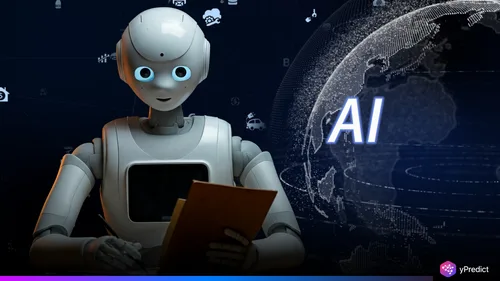
For years now, we have read headlines suggesting that we are watching an AI slowdown or that an AI bubble is about to burst and each wave of doubt has the effect of implying that the technology is losing momentum. However, they not only completely dismiss but also miss one important fact: artificial intelligence continues to develop and media’s sheer number of applications keep increasing.
When people refer to a potential bubble in AI, they are most often referring to companies based on unrealistic promises (or “moonshots” as investors like to say) or overly inflated valuations. They are rarely referring to the technology. While people often debate the merits of using AI systems as tools, the use of AI in some capacity as a tool is done across multiple industries from healthcare to finance. Sure, some startups will die off, but the technology is not going anywhere.
Why People Keep Predicting an AI Slowdown
Critics say AI has not followed the exaggerated re-imagined expectations of the last decade. They are quick to point out failures at certain startups or that venture capital funding is way down from its peak levels. Both of these signals weave a lineage that is compelling in the story of the AI slowdown.
The truth is much more complicated. Technology adoption is not linear. The initial rush is often viewed as some make-believe financial structure places speculative projects at the top of consumers’ expectations, but actual value emerges quite usually later on down the road. What critics are seeing as a slowdown is most usually a maturity of the industry establishing exclusion criteria that weed out the weakest actors.
This cycle is natural. The companies that fail are usually those without sustainable products, not the ones building meaningful real-world AI applications.
The AI Bubble Debate Is Really About Business Models
When analysts mention an AI bubble, they are not suggesting the technology will disappear. Instead, they question whether certain business models around AI can scale profitably. For example, some AI startups promise broad solutions without a clear path to revenue.
But this is not new. Every major innovation, from the automobile to the internet, saw businesses rise and fall before the winners emerged. The mistake is confusing weak business models with the failure of the underlying technology.
The truth is, the AI bubble conversation is about economics, not engineering. AI tools themselves continue to prove their value across industries.
Real-World AI Applications Are the Story That Matters
The primary trend in AI technology is the continued growth in real-world AI applications. AI is solving real world problems all day, every day, from logistics optimization to medical diagnostics.
In healthcare, AI helps doctors read scans and x-rays faster and more accurately. In finance, AI powers fraud detection systems that save the banking system millions. In manufacturing, predictive maintenance systems reduce downtime and costs. These applications are not experiments driven by hype; they are core operations.
This shift in operational AI across industries highlights why the AI bubble story is inaccurate. The tech is no longer experimental; for many industries, AI is a must-have / operational necessity.
Smart People Are Building Lasting AI Solutions
Innovation flourishes when gifted people apply AI in the real world. Developers, researchers, and entrepreneurs are focusing less on hype and more on usability. The best teams are building systems that add value with their natural integration into workflows, instead of seeking out the flashy, hollow.
This is how AI develops further. Real-world AI usage offers long-lasting value by improving efficiency, lowering costs, and enhancing decision-making capabilities. These are not just trends. They are durable advantages that can outlive untethered market speculation.
Looking Ahead: AI Beyond the Bubble Talk
The never-ending discussion about an AI bubble misses a much bigger picture. Every industry is still at the beginning of understanding how to effectively leverage AI. This transformation will take time, but it is already a permanent shift.
Skeptics, for whatever reason, will continue to discuss an AI slowdown; however, no one expects technology adoption within an industry to happen overnight. Technology adoption occurs in waves, with each wave being built upon by the last. Companies that pursue real-world applications of AI will be in a more powerful position while those who were propelled forward purely by hype will eventually disappear.
The fact of the matter is that AI is here to stay. It will continue to be a strong force in defining how work, business, and society will be in the future.






